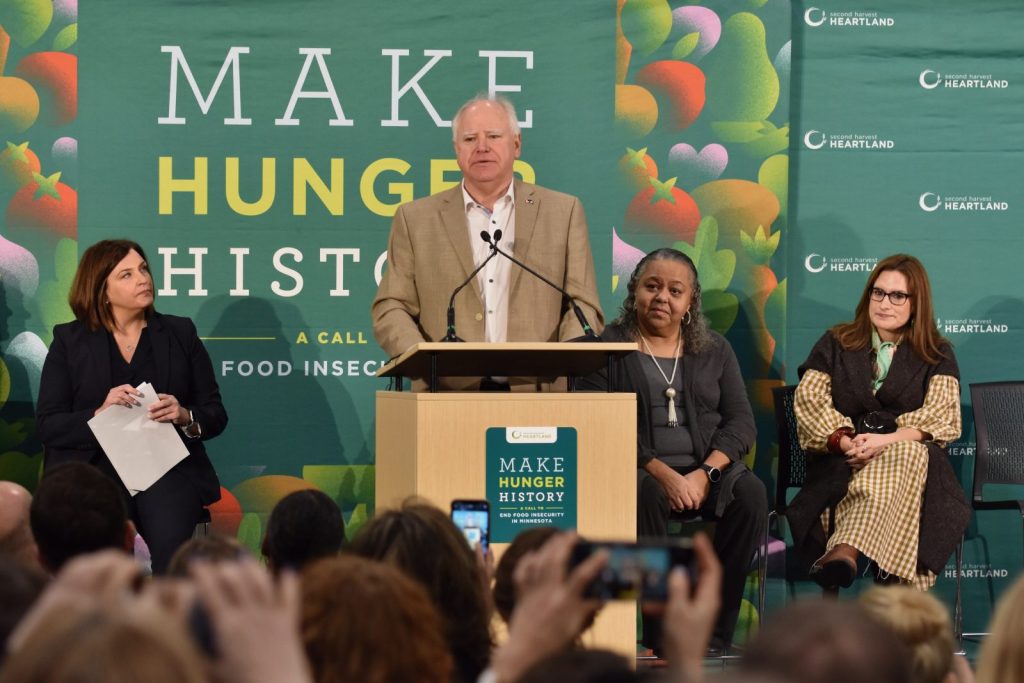Second Harvest Heartland Launches Initiative ‘To Cut Hunger in Half’
Minnesota’s largest hunger relief organization, Second Harvest Heartland, announced a bold new initiative this week to cut hunger in half.
Minnesotans visited local food shelves a record 7.5 million times in 2023. Brooklyn Park-based Second Harvest Heartland wants to reduce that number in half by 2030. To do that, it’s launching an initiative called “Make Hunger History.”
“If we get all in — business leaders, policymakers, volunteers, supporters, advocates, we can get ahead of hunger,” said Allison O’Toole, CEO of Second Harvest Heartland. “We can target the roots of the problem, we can re-imagine our work right here at Second Harvest Heartland to get more of the right food right where it’s needed most.”
Monday morning in Brooklyn Park, officials from Second Harvest were joined by state lawmakers and business leaders for the Make Hunger History kickoff event.
Some of the changes Second Harvest plans to implement include using mapping capabilities to identify “hunger hot spots” to get food where it’s needed most, creating new food pickup sites at places like libraries and fire stations, and forming a coalition of food shelves and other nonprofits aimed at getting the legislature to address some of the root causes of hunger. Those root causes include such things as access to affordable housing, transportation and health care.

Minnesota Governor Tim Walz addressed the crowed as the Second Harvest Heartland “Make Hunger History” kickoff event.
“We’re going to work across the spectrum of things we can deliver,” said Minnesota Governor Tim Walz. “We’re going to measure it, we’re going to hold ourselves accountable, and we are going to reduce hunger in Minnesota. The country needs someone, and it should just as well be Minnesota, to be the beacon to show this can happen.”
During Monday’s kickoff event, officials from Cargill and Target announced each of their companies will donate $10 million to help fund this new initiative.
Second Harvest officials say it will take between $150 to $250 million to achieve its goal of cutting hunger in half.
Related: Second Harvest Heartland: Families Still Struggling ‘At Historic Rates’


